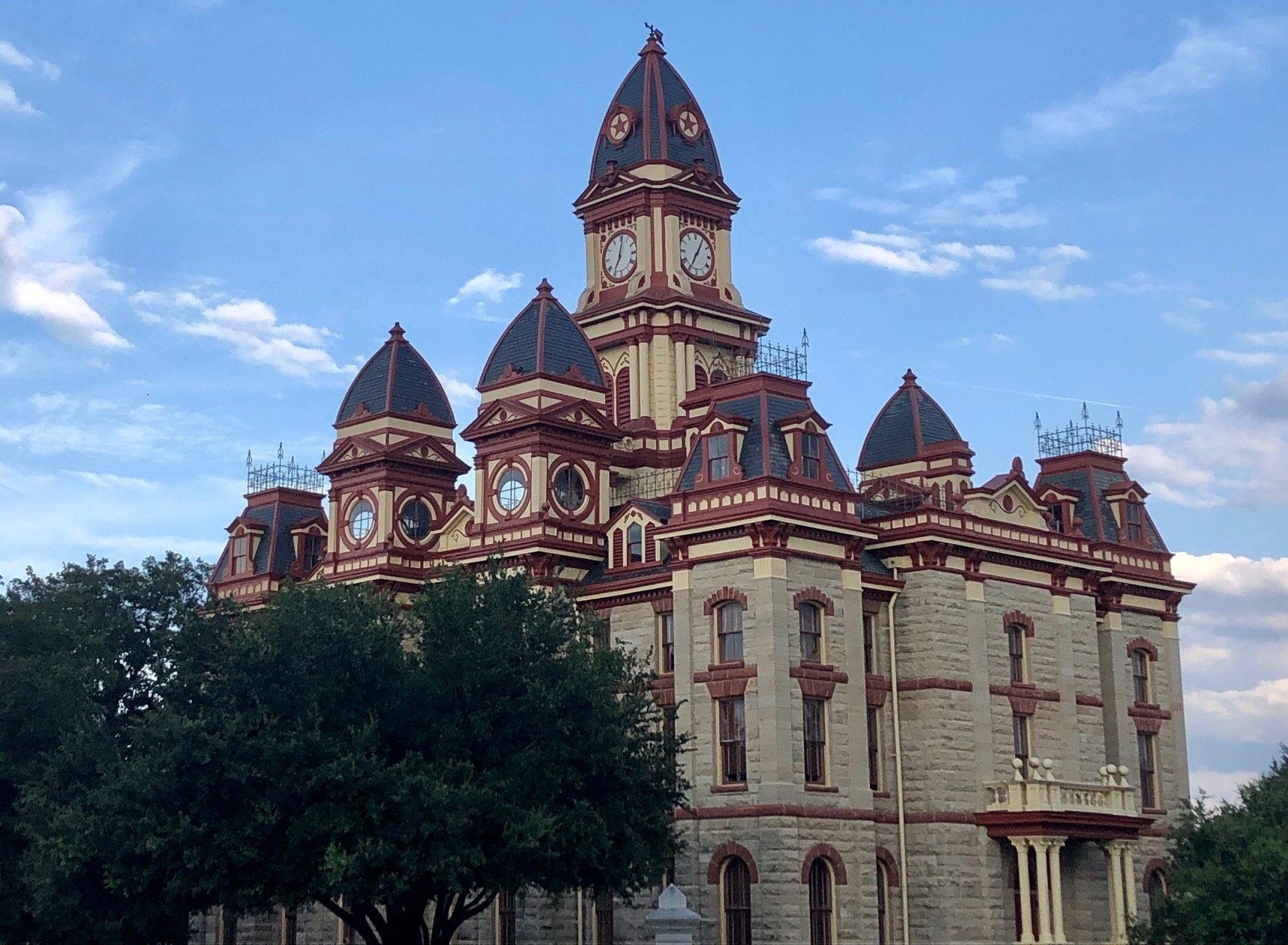AUSTIN, Texas (CN) — A federal judge this week ordered a Texas county to make its bail hearings available to the public after a group of nonprofits sued the county over access.
In his order late Monday, U.S. District Judge Robert Pitman, an Obama appointee, issued a preliminary injunction barring Caldwell County and its officials from "enforcing their policy of closing all magistration proceedings."
Acknowledging that the county may need time to change its bail procedures, Pitman gave officials there until early March to comply with the order. The judge said there may be circumstances in which Caldwell County could close bail hearings but stressed that even in those cases, county officials must first provide the public with "reasonable notice and an opportunity to be heard."
The legal fight started last year, when several nonprofits sued Caldwell County, arguing they were systematically being denied access to bail hearings.
According to the suit, several top officials in the small Central Texas county — including the county judge, the county sheriff and four justices of the peace — had "adopted a policy of categorically closing all magistration proceedings to the press and public." The county sheriff was enforcing this policy by keeping journalists and others out of bail hearings, the lawsuit argued, in violation of the First and Fourteenth Amendments.
Among the plaintiffs in the case were two news outlets: Texas Tribune, a major state news website based in Austin, and the Caldwell/Hays Examiner, a small publication based in the college town of San Marcos, which includes portions of Caldwell County. Also joining the suit was Mano Amiga, a local nonprofit that advocates for criminal and immigration reform and runs a bail fund in Caldwell County.
According to the case, the groups had tried for years to access these hearings but had been unsuccessful. The head of the Caldwell/Hays Examiner in 2022 visited the county jail to discuss viewing bail hearings. James Short, a captain with the local sheriff's department, confirmed that bail hearings were closed to the public but said the public could perhaps attend if the magistration room was remodeled or if the county "used a different type of videoconferencing account," court filings state.
Days later, Mango Amiga sent the county a letter stressing it had a constitutional right to access bail hearings and urging county officials to change their policy. The county judge told the group that local officials were "maintaining the policy banning the public from observing magistrations," court filings state, and did not respond to follow-up letters from the Knight First Amendment Institute and the Texas Fair Defense Project.
In his order on Monday, Judge Pitman first acknowledged that the nonprofits were likely to succeed in their suit. While there were limited exceptions, the U.S. Supreme Court in general had "long recognized a First Amendment right of access to criminal trials and criminal pretrial proceedings," Pitman wrote.
"Open bail hearings foster an informed discussion of criminal justice by providing the public with a more complete understanding of the judiciary system," Pitman wrote in his order. "Openness also acts as 'an effective restraint on possible abuse of judicial power' by subjecting the hearings 'to contemporaneous review in the forum of public opinion.'"
Turning to the issue of harm, Pitman said the press and public were inherently harmed by being denied access to public court hearings. He cited the Supreme Court's 1976 ruling in Elrod v. Burns, in which the court held that "the loss of First Amendment freedoms, for even minimal periods of time, unquestionably constitutes irreparable injury." In that case, a newly elected Democratic sheriff in Illinois fired several Republican employees after taking office.
Pitman was not impressed with legal arguments by Caldwell County in the case.
"Defendants missed their deadline to respond to the motion for preliminary injunction," Pitman noted in his ruling. When they did ultimately reply, they did not "seem intent on persuading the Court" but "rather to comply with the Court’s order to file something," he quipped.
On the other hand, the judge said, Texas Tribune and the other nonprofits had provided a compelling showing of injury. Sewell Chan, editor at Texas Tribune, argued that access to court hearings was "fundamental to The Texas Tribune’s mission of ensuring that every Texas is empowered with the civic information they need to become full participants in our
democracy." Mano Amiga likewise said the ban was impeding "many aspects of the organization’s work, including bailing people out of jail expeditiously," while the Caldwell/Hays Examiner said the policy was harming their ability report the news, including "issues related to detainees’ mental health, and the jail population size and demographics."
Hoppy Haden, county judge of Caldwell County, did not immediately respond to a request for comment on Tuesday. In a brief phone interview, Caldwell County Sheriff Mike Lane said the county would comply with the order by Pitman's March deadline.
Citing safety and security reasons, Lane said Caldwell County had long barred access to bail hearings because they happen inside the county jail itself. He said county officials would likely devise a way for outlets like the Caldwell/Hays Examiner to attend such hearings remotely.
Subscribe to Closing Arguments
Sign up for new weekly newsletter Closing Arguments to get the latest about ongoing trials, major litigation and hot cases and rulings in courthouses around the U.S. and the world.









